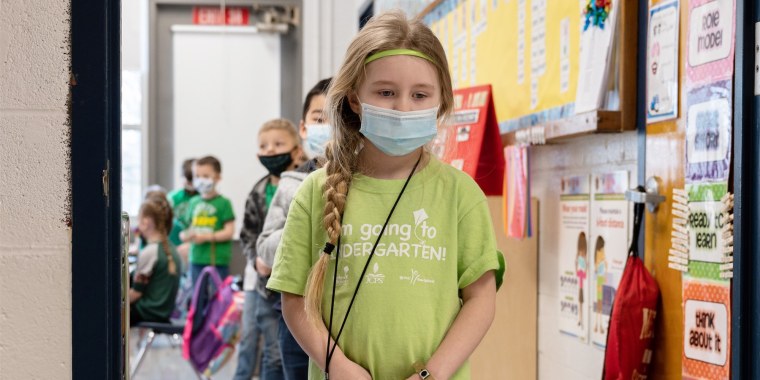When I wrote “13 Things Strong Kids Do” at the beginning of the pandemic, I had no idea just how much kids were going to need mental strength one year later.
Covid-19 has taken an immense toll on kids’ psychological well-being. In fact, 60 percent of parents reported being concerned with their kids’ mental health right now, according to a survey we conducted at Verywell Mind.
As a psychotherapist, I know parents can take steps to improve their kids’ mental well-being. Here’s how you can get started:
Teach them to label their feelings.
Just putting a name to feelings takes a lot of the sting out of them. A kid who can say, “I’m sad,” or “I’m anxious” might get a little instant relief.
Help younger kids name what they’re feeling by saying things like, “It looks like you feel mad right now.”
Use feeling words in everyday conversation with older kids to teach them more about emotions. You might ask them how they think a character in a book or on TV feels at certain times. And check in with them often about their emotional state.
Don’t forget to talk about your feelings too. While you don’t want to burden kids with your own stress, it’s important for them to know that you feel a wide range of emotions, too.
Assist them in figuring out when their feelings are a friend or an enemy.
Any emotion can be a friend sometimes. For example, anger might give them the courage to stand up for a friend who is being bullied. Sadness might help them honor something they’ve lost, like a friend who moved away.
But these same emotions can be enemies, too. Anger may cause them to say things they don’t mean. And sadness becomes an enemy when it prevents them from doing fun things with their friends.
Talk to kids about how to recognize when it’s OK to embrace an uncomfortable feeling and when it’s a good idea to shift their feelings. You might ask, “Is your anger a friend or an enemy right now?” when your child is upset. If it’s an enemy, they may need to take steps to calm themselves down before attempting to tackle a problem.
Get proactive about teaching healthy coping skills.
Help your kids discover the coping skills that help them deal with uncomfortable emotions. Breathing exercises, coloring, going for a walk outside, or calling a friend are just a few strategies that might help. But what works for one child might not work for another.
So, help your child experiment with different tools until they discover what helps them best deal with anxiety, sadness, anger, or other uncomfortable feelings. You might even create a “calm-down kit” or a “cheer-yourself-up kit” which could be filled with anything from joke books to scented lotion.
Then, when they’re struggling with an uncomfortable feeling, you can encourage them to take responsibility by reminding them to use their coping skills. They can report back on what worked best. And together, you can problem-solve new strategies for things that aren’t working.

Encourage self-compassion.
When kids say things like, “I’m going to fail that test,” or “No one likes me,” it’s tempting to jump in and reassure them that everything is going to be fine.
But it’s important for kids to learn how to talk back to their own negative thoughts. This way, when you’re not there to reassure them, they’re able to do it for themselves.
A great way to help them develop a more self-compassionate inner dialogue is by asking them, “What would you say to a friend who had this problem?” Kids are usually kinder to their friends than themselves. Encouraging them to give themselves the same advice they’d give someone else can help them develop a kinder inner dialogue.
Assist them in challenging their self-doubt.
When your child doubts their ability to make a team or insists they can’t figure out how to do their work, remind them that their brains lie to them sometimes. And their job is to try to prove it wrong.
Respond by saying, “I think your brain is trying to trick you right now. Let’s see if we can outsmart it by trying to do this even though it’s telling you that you can’t.” With practice, kids learn to challenge their negative thinking in healthy ways.
Amy Morin is a psychotherapist, the editor-in-chief of Verywell Mind, and the host of “The Verywell Mind Podcast.” She's also an international bestselling author whose books on mental strength have been translated into more than 40 languages. She gave one of the most popular TEDx talks of all time, and she lives on a sailboat in the Florida Keys.
